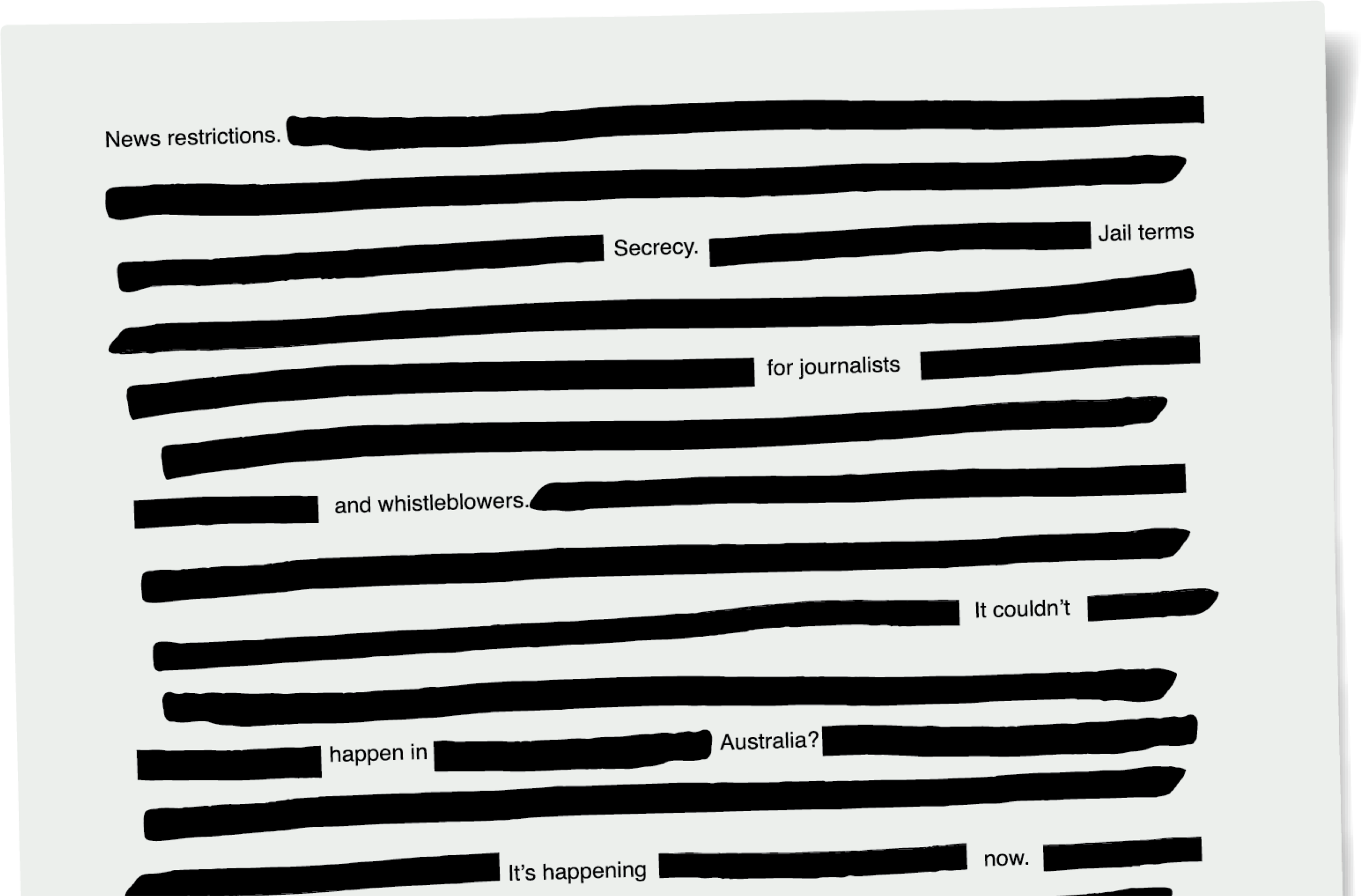Get the facts
Why media freedom is important
You deserve to know the truth. The truth about tax dollars spent and decisions made behind closed doors, on your behalf.
Journalists play an important role in defending this right to know. They hold to account those you elect, and the businesses that influence them. Through their reporting, they help make sure public officials are working for you – not special interests – and act as a counterweight to corruption.
This work can be controversial. In order to do it, journalists and their sources need some basic freedoms and protections. Without these, getting too close to the truth can mean having their careers and personal freedom threatened.
Today we’re at a tipping point. Australian governments are becoming increasingly secretive about important information that affects peoples’ health, wealth and basic rights, from aged card abuse to covering up details of land deals.
Reporters and whistleblowers live in growing fear of criminal charges, police raids and damaging court battles. As their role comes under fire, your right to know is also being slowly and quietly eroded.
Powerful people can avoid accountability and democracy is undermined.
Media freedom is a central part of our democracy.
Read through previous submissions made by Australia’s Right to Know coalition.
